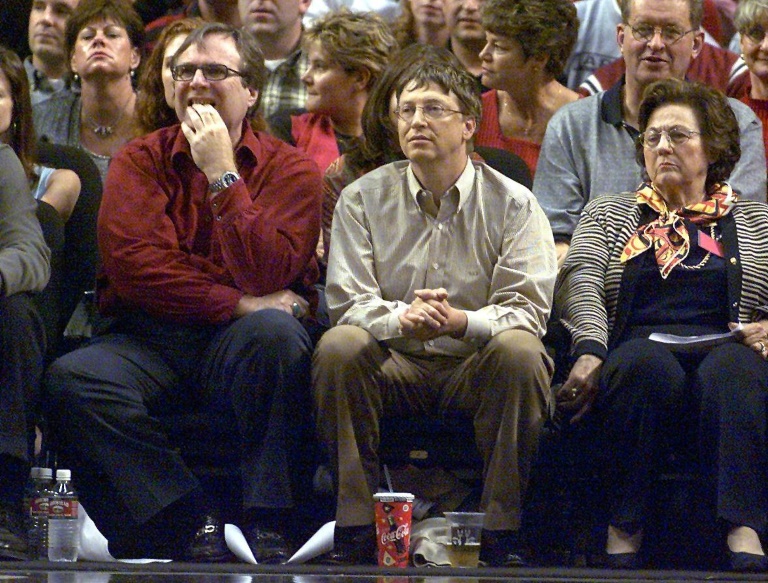US President Joe Biden will visit Israel Wednesday in a show of “ironclad” support as Washington tries to prevent the escalating war against Hamas in Gaza from spilling into a wider Middle East conflict.
Anger and bloodshed have surged as the war has claimed thousands of lives since the militants’ attack, with most of the dead on both sides civilians.
Biden’s trip will come 12 days after the Palestinian militants of Hamas burst through Israel’s heavily fortified Gaza border, shooting, mutilating and burning more than 1,400 people.
Shell-shocked Israel has responded with withering air strikes against targets in Gaza, leaving about 3,000 Gazans dead, according to the health ministry in the Hamas-run territory. It has also imposed a crippling siege on the impoverished territory and deployed tens of thousands of troops in preparation for a full-scale ground offensive.
Israel has vowed to destroy Hamas while also seeking to rescue the at least 199 hostages taken into Gaza by Hamas, which has released a video of one of the captives, French-Israeli woman Mia Shem.
Her mother, Keren Shem, made an emotional plea for her safe return, at a Tel Aviv press conference. “I ask world leaders that my daughter be returned to us in the state that she is today, as well as the other hostages,” she said. “I am begging the world to bring my baby back home.”
Diplomatic bids to free the hostages have gathered pace. Turkey said it was in talks with Hamas to secure their release.
But there were mixed views about how effective Biden could be, with some Palestinians blaming the United States for backing Israel, and even Israelis sceptical.
“We don’t believe anymore in politicians,” said Omer Nevo, 23. “I don’t trust anyone anymore after what has happened here.”
– Iran warning –
Army spokesman Jonathan Conricus said Tuesday that Israeli forces “will commence the enhanced military activities when the timing suits the goal”. He stressed that “if hostages are dead, that is the responsibility of Hamas and Hamas will pay the price”.
The army later announced the killing of a senior Hamas commander, Ayman Nofal. Hamas also confirmed his death.
Israelis are still reeling from the worst attack in the country’s 75-year history, which has sparked a mass mobilisation of reservists and the evacuation of residents from areas near Gaza and Lebanon.
In southern Israel, dozens of mourners gathered for the funeral of five members of the same family, who were killed when militants attacked their kibbutz at Kfar Aza. All five coffins were draped in Israeli flags.
US Secretary of State Antony Blinken, back in Israel after a whistlestop regional tour, said Biden’s visit would be a statement of “solidarity with Israel” and an “ironclad commitment to its security”.
Support also came from Germany, whose Chancellor Olaf Scholz was in Tel Aviv. “The world must stand united behind Israel to defeat Hamas,” Israel’s Prime Minister Benjamin Netanyahu said, alongside Scholz.
Washington has already sent two aircraft carrier strike groups to the eastern Mediterranean “to deter hostile actions against Israel”. The Pentagon has put 2,000 troops on deployment alert to be able “to respond quickly to the evolving security environment in the Middle East”. US media said the troops would cover support roles such as medical assistance and handling explosives.
Israel’s arch foe Iran, which backs both Hamas and Lebanon-based Hezbollah militants, has repeatedly warned against a Gaza invasion and Monday raised the spectre of a possible “pre-emptive action” against Israel “by the resistance axis.”
Iran’s supreme leader Ayatollah Ali Khamenei said Tuesday that “no one can stop” forces opposed to Israel if it keeps up its bombardment of Gaza.
Deadly flare-ups have rocked Israel’s northern border with Lebanon. Israel’s army said Tuesday it had killed four militants attempting to infiltrate from Lebanon. Hezbollah later said four of its fighters were killed “performing jihad”, taking the number of its fighters killed in the intensifying border skirmishes to nine.
White House National Security Council spokesman John Kirby was asked on CNN whether US authorities had so far noticed Iran engaging in the conflict in new ways. “Outside of the rhetoric…, no we haven’t,” he replied.
– ‘Corpses in the street’ –
Biden will also try to quietly steer Israeli’s military response, as international alarm has grown about the devastating impact of the war on Palestinian civilians.
Entire neighbourhoods have been razed and survivors are left with dwindling supplies of food, water and fuel.
The health ministry in Gaza said hospitals were at breaking point, with more than 30,000 people taking shelter at the Al-Shifa hospital in Gaza City alone.
It said it was “extremely concerned” about disease outbreaks due to poor water supply and sanitation. “Hospitals have entered a state of effective collapse due to power outages and fuel shortages,” said Gaza health ministry spokesman Ashraf al-Qudra.
“There are corpses in the streets. Buildings are crashing down on their inhabitants,” said Jamil Abdullah, a Palestinian-Swede, hoping to flee the blockaded enclave. “The smell of the dead is everywhere,” he said.
“Enough!” cried Moamed Abu Zaid, counting about 20 family members killed in one strike. “How long will this continue for?”
The UN agency for Palestinian refugees, UNRWA, says more than one million Palestinians — almost half of Gaza’s population of 2.4 million — have fled their homes.
An UNRWA flour storage near Gaza City was hit by an Israeli strike, an AFP photographer said. Even as the smoke was still rising from the rubble, desperate residents collected flour from the ground.
“We are dying of hunger. We have no food, we have lost our belongings,” said Abu Hussni al-Hujein, 60.
Israel has demanded that residents of north Gaza leave for the south, hoping to clear the area of civilians in preparation for a ground assault that would involve gruelling urban combat.
– No escape –
Since the evacuation order entire families, young children and the elderly have gathered belongings and fled to southern Gaza, bedding down in any available space, indoors and out.
Egypt kept closed Gaza’s only border crossing not controlled by Israel, Rafah, meaning there is no escape.
Israel has repeatedly struck the area on the Palestinian side and denied reports of any temporary ceasefire deal to open it.
Rafah’s closure has so far prevented the escape of thousands of Palestinian-Americans and others hoping to get out of Gaza, or the entry of relief goods now loaded on truck convoys waiting in Egypt.
For now Gazans remain trapped, with neighbouring Arab nations also fearful that if Palestinians leave the territory they could be permanently exiled.
burs-jd-fz/phz/it – Daphne Rousseau with Adel Zaanoun in the Gaza Strip




